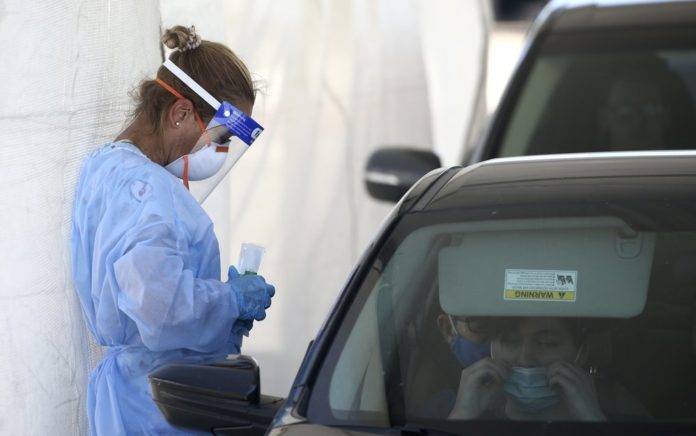
Hospitalizations from the coronavirus are on a slight downturn in Arizona, along with the number of people on ventilators and in intensive care units, according to the latest state figures.
Arizona reported 1,559 new cases of the coronavirus on Monday and 23 deaths, but not all hospitals submit data over the weekend. The new numbers bring the state’s case total to 145,183 infections and deaths to 2,784.
Arizona had been experiencing some of the highest rates of coronavirus cases and hospitalizations in the country since Gov. Doug Ducey lifted a stay-at-home order in mid-May.
Hospitalizations reported Monday were at the lowest level in more than two weeks, a sign that Arizona’s COVID-19 outbreak might be moderating. The number of people on ventilators and in intensive care also has decreased.
The number of infections is thought to be far higher because many people have not been tested, and studies suggest people can be infected with the virus without feeling sick.
Only about a third of the 15,000 available testing appointment slots were used at two testing sites run by the federal government in Phoenix over the weekend, according to the Arizona Department of Health Services. The federal government agreed to do 5,000 tests per day for 12 days amid pressure over a lack of testing as Arizona’s coronavirus cases soared.
The federal testing sites promise results in about two to three days. Meanwhile, Sonora Quest, which processes a majority of the rest of the testing in Arizona, says results are taking more than a week, and in some cases as long as 12 days, according to its website. Sonora Quest plans to significantly upgrade its processing capacity but has struggled with a huge crush of samples to process.
For most people, the new coronavirus causes mild or moderate symptoms, such as fever and cough that clear up in two to three weeks. For some, especially older adults and people with existing health problems, it can cause more severe illness, including pneumonia and death.
Republished with the permission of the Associated Press.














